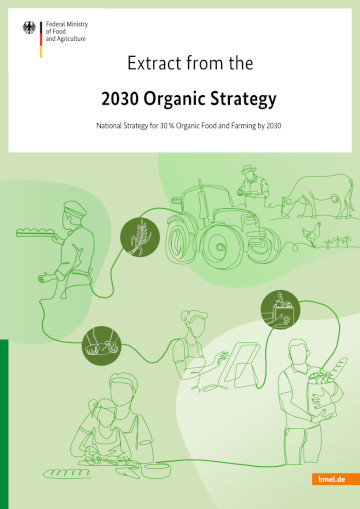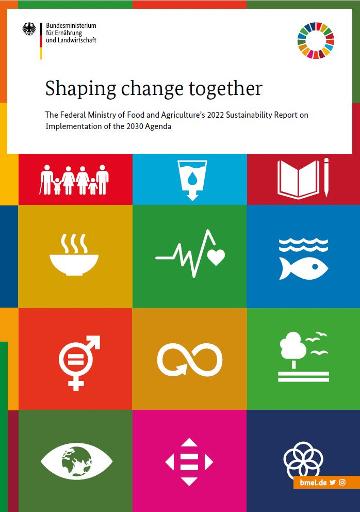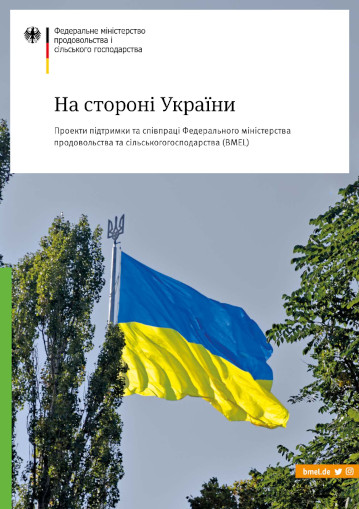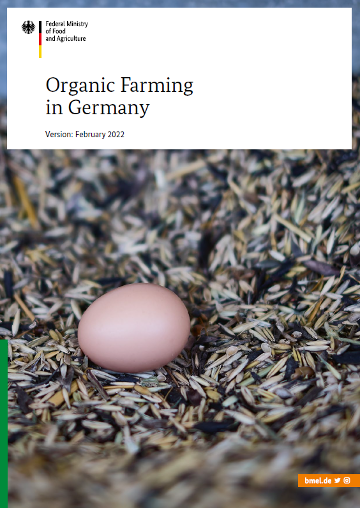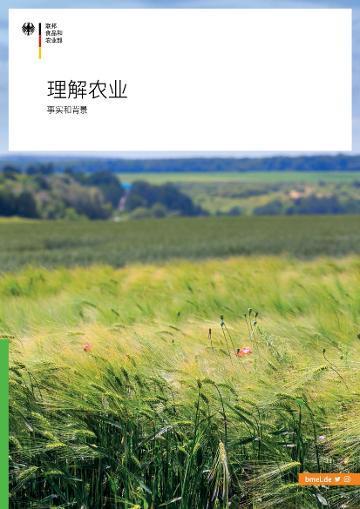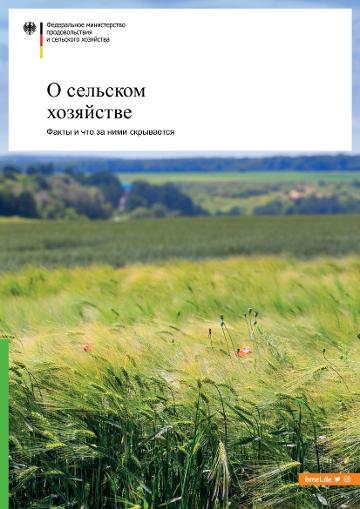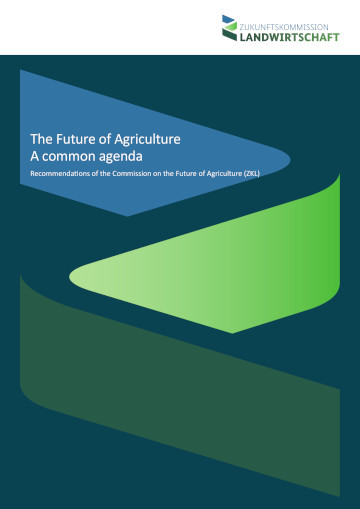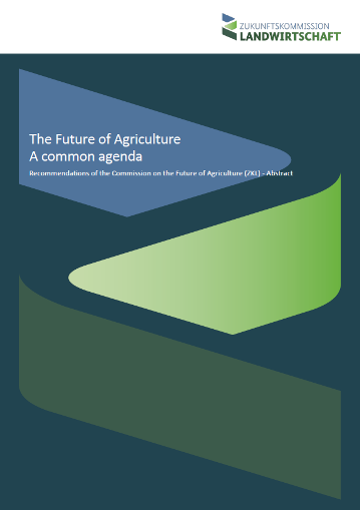Klöckner: Trade is consequently indispensable for global food security.
Speech by Julia Klöckner, Federal Minister of Food and Agriculture, at the GFFA Agriculture Ministers' Conference 2020
Check against delivery!
Ladies and Gentlemen,
Guests,
I. Introduction: We need a signal for rule-based free trade
When we suggested the issue of trade and global food security to you for our GFFA conference, this occurred against the backdrop of
- growing protectionism around the globe,
- a calling into question of the global trade order and
- escalating trade disputes.
From our viewpoint as agricultural stakeholders we have followed this development with great concern because agri-food products are already incorporated in global value-added chains. In 2016, exports of agricultural products totalled around 1.4 trillion US dollars.
Trade is consequently indispensable for global food security.
It is therefore in our interest to help shape the rules of international trade relations. It is in our interest to ensure that the special concerns of agriculture and the food industry are taken into account.
At that point in time we were only able to guess how relevant this topic would become. The situation over the past year has become even more critical. There are now first signs that tensions may be easing, at least regarding bilateral disputes.
We must now build on this. And take action to sustain this system. The WTO whose rules have, ever since its foundation in 1995, stood for legal certainty, transparency and equal treatment in global trade .And it has now, due to the blockade of its dispute resolution, been deprived of its key instrument. The WTO crisis is taking us into a world in which there are no rules. Into a world where we face the real threat of the law of might taking the place of vested rights.
We have reached a point where I appeal to you:
- let us be courageous today.
- Let us send out a joint signal today:
- that the international agricultural world assembled here today in Berlin is sending a message for rule-based free trade.
- That it is calling on the international community to join forces and make every effort to maintain the WTO as the key instrument.
As the main institution
- to further develop and channel international trade,
- to negotiate the further dismantling of agricultural subsidies that distort trade.
I am well aware, in saying this, that the WTO is not a perfect system. It is like with democracy: while it may not be a perfect system it is the best we've got. It is therefore our duty to defend the WTO.
Therefore: Let us be send a signal!
II. Agriculture bears a particular responsibility
And let us take a step further: and jointly define how we envisage international agricultural trade in the future. Because the WTO and trade - all of this is, in the first place, not a value in itself.
But trade can perform functions.
- It can increase prosperity.
- It can feed people, including in regions where few crops grows.
- It can generate development, sustainable development, also in rural regions.
- Trade means networking.
- It allows specialisation and thus balances regions with different production conditions.
- And trade, not least, always helps secure peace. For those who engage in trade stay in touch, communicate and lay the foundations for understanding.
Only if trade fulfils all these functions will it become of value to us. Only then will it be valuable. This is why we need rules.
It is my conviction that:
We will only be able to achieve lasting and sustainable acceptance for international trade and its institutions if we interlink trade more closely with these goals and these values as an instrument to promote a development that helps those lagging behind catch up.
And I am also convinced that: we as Agriculture Ministers bear a special responsibility for this.
Why special? Because we as Agriculture Ministers view trade policy not only in terms of trade balances. Rather, we are the ones who look through the magnifying glass right to the point where production and consumption take place. In the fields. In village communities. Where agriculture is the nucleus for stable development.
For what are we talking about when we speak abstractly of 820 million people suffering from hunger?
We are talking about individual fates. About missed opportunities. We are talking about parched fields. Of landscapes becoming barren because they have not been managed well. Or because climate change is changing landscapes.
We are the ones who witness on the ground what that means. And how important it is to seize every opportunity to remedy this situation.
International trade in agricultural products is one such opportunity.
It has the potential
- to create a worldwide balance between regions that produce different foods,
- to enable the sustainable and site-specific use of resources, and to
- ensure a secure, healthy and diverse supply of foodstuffs.
The potential, in fact, to provide food for all. This potential must be tapped.
III. How can we manage to do this?
How do we succeed in actually harnessing this potential? We have made a whole series of very specific proposals and measures on how to bring this about in our Communiqué.
What do we propose?
- We suggest strengthening social security systems to ensure that wealth benefits everyone.
- We propose promoting diversification to avoid dependencies.
- We suggest supporting investments in education, infrastructure and extension.
- We propose promoting innovation, for example with regard to the digital transformation, to facilitate the exchange of information and create more market transparency.
- Also with a view to facilitating trade on digital platforms.
- We want to empower women, strengthen their rights and make it easier for them to access markets.
- We want to involve smallholders more closely in markets, also by promoting cooperatives.
- We want to advance the development of sustainable value-added chains.
More specifically we want to work to ensure that the International Organisation for Standardisation (ISO) develops voluntary international standards for sustainable supply chains.
We also need to consider how we are handling existing standards. In this regard, I consider it important that we share a basic belief:
- on the one hand we must not, by means of trade liberalisation, undermine standards that are, for instance, justified for reasons of consumer protection or high environmental and social standards.
- At the same time, however, we must not leave anybody behind because he or she cannot meet the standards.
This may often seem like trying to square the circle. But in order to achieve this - to do just that we need solid structures, such as those in place within the WTO.
But digitalisation is also playing an increasingly important role for global food security.This is why we have highlighted the results of the 2019 GFFA on digitalisation in agriculture once again.
Trade has always been a driver.
Development has always occurred when goods have been transported and exchanged: products have generated diversity, exchange and prosperity.
Trade brings people, countries and cultures closer to one another. It can thus bring peace.
Let us build on this and together:
- reinforce a trade order based on rules and values in a period of global uncertainty;
- enter the negotiations at the 12th WTO Ministerial Conference in Nur-Sultan in a stronger position.
- With a clear message: We need global trade and we need global rules!
- A strong signal for multilateralism
- But we also need to strengthen regional and local markets.
- This is why the creation of a pan-African free-trade zone is an important milestone.
- We are delighted that the African Union’s Commissioner for Agriculture has joined us today to present her views.
Thank you very much!
location: Berlin

